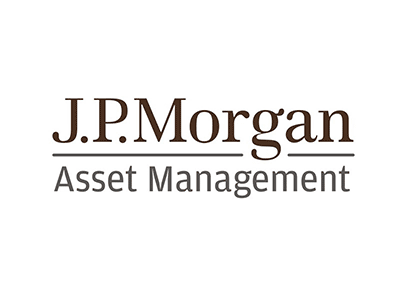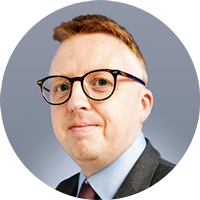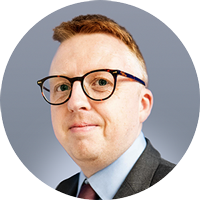Leon Eidelman has a wealth of experience investing across emerging markets
JPMorgan have invested in a highly resourced team to support the managers
Performance has been more volatile in recent years
This fund features on our Wealth Shortlist of funds chosen by our analysts for their long-term performance potential
How it fits in a portfolio
The JPMorgan Emerging Markets fund aims to deliver capital growth over the long term. It invests in growing businesses across a diverse range of emerging economies such as China, India, and Brazil. While emerging markets can offer plenty of opportunities for investors, they're higher risk and typically more volatile than developed markets.
Given its focus on growth, the fund could work well alongside more value-orientated Asia and emerging market funds. It could also be blended with other funds that focus on developed markets as part of a globally diversified investment portfolio.
Manager
Leon Eidelman joined JPMorgan in 2002 and became co-manager of this fund in 2013. He was appointed lead manager in 2016 and has final responsibility over which companies are in the fund. He also makes use of the input and challenge provided by his co-managers, Austin Forey and John Citron.
Forey is a seasoned emerging markets investor and has managed money in emerging markets since 1994. His career at JPMorgan began in 1988 during which he’s built up an extensive knowledge of global markets. He served as deputy head of UK research before joining the emerging markets team in 1994.
Citron was appointed co-manager of the fund in March 2025. He has been at JPMorgan since 2009, starting as a European equities analyst before joining the emerging markets team in 2017. Since 2021 Citron has been deputy manager of the JPMorgan Emerging Markets investment trust, working closely with Forey. We view the addition of Citron as co-manager positively, reflecting his stature and tenure within the team.
The trio also manage or contribute to other emerging markets funds at JPMorgan, using the same core process throughout. Given the large degree of overlap across these strategies, we think they’ve plenty of time to comfortably manage these responsibilities.
The managers benefit from a well-resourced team of over 100 investment professionals across nine countries, giving them eyes in most corners of the market. We think this is invaluable given the vast range of countries, cultures, and companies within their investable universe.
Process
The managers aim for the fund to perform better than the broader emerging stock market by investing in high-quality companies that can sustain earnings growth over the long term. They believe most investors underestimate the potential for share price growth in companies that can grow their earnings at a sustainable pace over a long period of time. This could help them buy company shares at a reasonable price and hold on to them as they grow their profits, and hopefully their share prices, over the long run.
As lead manager, Eidelman oversees how the fund is constructed. He also leans on the wider team of analysts who carry out extensive research and provide new ideas. They travel across the region to visit companies and gain insight into what's happening in different markets.
The team looks for quality companies with the aim of calculating how much a company will grow its earnings over the next five years. They consider the financial strength of a business, the quality of the management team, and the level of corporate governance. Other factors, such as the dividends a company pays and how changes in a country's currency might impact a business, are also considered.
This whittles a large universe down to a final portfolio of around 60-80 companies. Geographically, the managers invest the most in China, Taiwan, and India, but they do invest less than the benchmark in all three countries. In contrast, they find more opportunities in Brazil and Argentina.
On a sector level, the fund has sizeable investments in financials (although slightly less than the benchmark) and technology companies. There’s also more invested in consumer discretionary and industrials companies than the benchmark.
The managers mainly invest in large, established firms, but also invest in some medium-sized companies with greater growth prospects. They also have the flexibility to invest in higher-risk smaller companies, though they have tended not to venture into this area of the market.
When making any investment, they do so with the long term in mind. As a result, changes to the fund don’t happen often. However, they have found some interesting opportunities over the past year.
Investments were made in the Singaporean e-commerce business Sea Ltd and the Brazilian aerospace manufacturer Embraer. To make room in the fund for these new positions, investments were sold in Chinese drinks company Kweichow Moutai and Infosys, an Indian IT services provider.
Culture
JPMorgan is one of the world's biggest asset managers. It has investment professionals based all over the world, and the team behind this fund can tap into this experience and local knowledge. There has recently been some change in the analyst team in China in order to better embed JPMorgan’s culture, but at a senior level the team has remained stable.
Eidelman and Forey have remained loyal to the group and spent their entire careers at JPMorgan, and we think they are dedicated to the emerging markets team. We view it positively that the managers are incentivised to focus on long-term performance.
ESG Integration
JPMorgan committed to integrate Environmental, Social and Governance (ESG) factors into its investment processes for active funds in 2016 and ESG is now a foundation for investment decisions across the firm. JPMorgan funds take a variety of different approaches, from quantitatively scoring companies on a variety of ESG measures to help with portfolio construction, to more qualitative analysis achieved through fundamental research and company meetings.
All fund managers have access to the central Sustainable Investing team, as well as thematic research and analytics, which focus on climate change and carbon transition. Investment teams are required to demonstrate their progress on integrating ESG to the Sustainable Investment Oversight Committee, a group of senior managers from across the business. Their progress is measured against a 6-metric framework and must satisfy several conditions before it is certified as ‘ESG Integrated’. If the strategy does not meet this threshold, the investment team in question will need to incorporate feedback from the Committee and reapply to restart the review process. Investment teams are then subject to ongoing monitoring. We like this objective approach to internal ESG accreditation.
The firm has detailed voting policies which are specific to each region they invest in and account for local customs. Investment teams and investment stewardship specialists in the relevant region are responsible for implementing those policies, based on their deep knowledge and experience of the country, sector and company. A detailed fund-by-fund and company-by-company voting record is available on the JPMorgan website, although voting rationale is not provided. Fund managers also regularly engage with the companies they invest in, and there are a number of case studies on their website and in their annual Investment Stewardship report.
In February 2024, JPMorgan Asset Management controversially withdrew from the Climate Action 100+ collaborative engagement initiative, citing that it had built up its own stewardship capabilities. Following a meeting with the firm’s Global Head of Sustainable Investing, we were left feeling confident that it remains firmly committed to sustainability.
While ESG is integrated across the firm, this fund does not have a responsible mandate.
Cost
This fund is available at an annual ongoing fund charge of 0.84%, but with a 0.25% saving it’s available to HL clients for 0.59%. The HL platform fee of up to 0.45% per year also applies, except in the HL Junior ISA, where no platform fee applies.
Performance
Since Eidelman became lead manager of the fund in 2016, he’s delivered returns of 97.28%* to investors. This is ahead of both the MSCI Emerging Markets index and the average fund in the IA Global Emerging Markets sector, which rose 96.36% and 76.63% respectively. Past performance isn’t a guide to the future.
More recently the fund has performed well in strong market conditions, returning 22.68% over the 12 months to September 2025. This was ahead of the 17.74% growth of the benchmark and the wider sector, where the average fund returned 15.60%. It’s pleasing to see the fund return to outperformance after a period where the fund didn’t perform as well as the market, partly driven by poor stock selection in China.
Performance over the past year has benefited from strong stock selection in the industrials sector, with companies such as Hanwha Aerospace in Korea and Turkish defence company Aselsan Elektronik Sanayi Ve Ticaret both contributing positively. The fund was also helped by having less invested than the benchmark in India and Saudi Arabia, two markets which have struggled over the past year.
Not all investments worked as well though. Argentinian IT services company Globant was a detractor to performance as its earnings weakened. India’s Tata Motors and Indonesia’s PT Bank Rakyat also performed poorly and have since been sold from the fund.
Annual percentage growth
September 20 – September 21 | September 21 – September 22 | September 22 – September 23 | September 23 – September 24 | September 24 – September 25 | |
|---|---|---|---|---|---|
JPM Emerging Markets | 12.31% | -22.61% | -1.37% | 10.08% | 22.68% |
MSCI Emerging Markets | 13.70% | -12.79% | 2.59% | 15.14% | 17.74% |
IA Global Emerging Markets | 17.32% | -15.48% | 2.42% | 13.07% | 15.60% |


